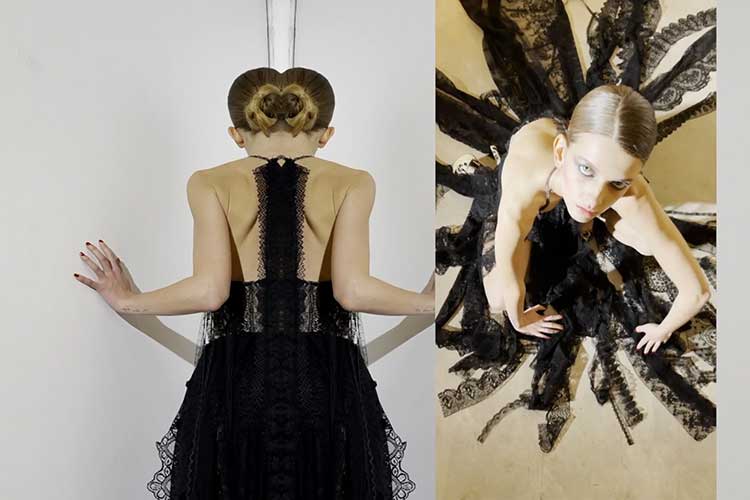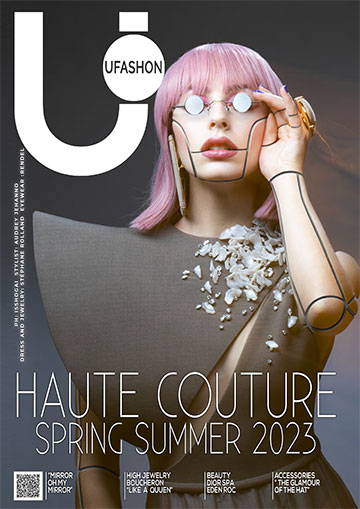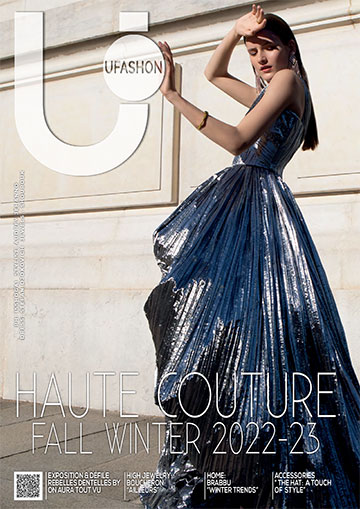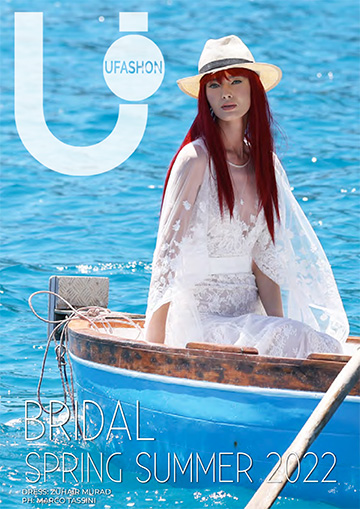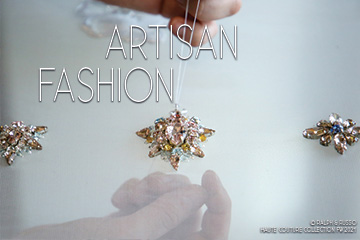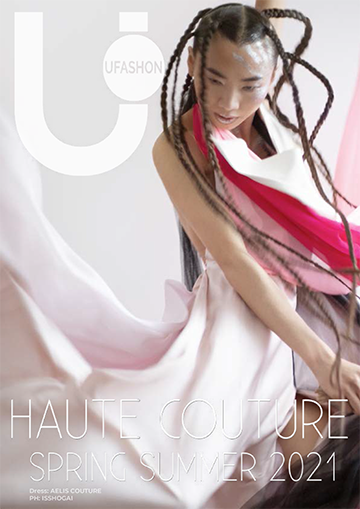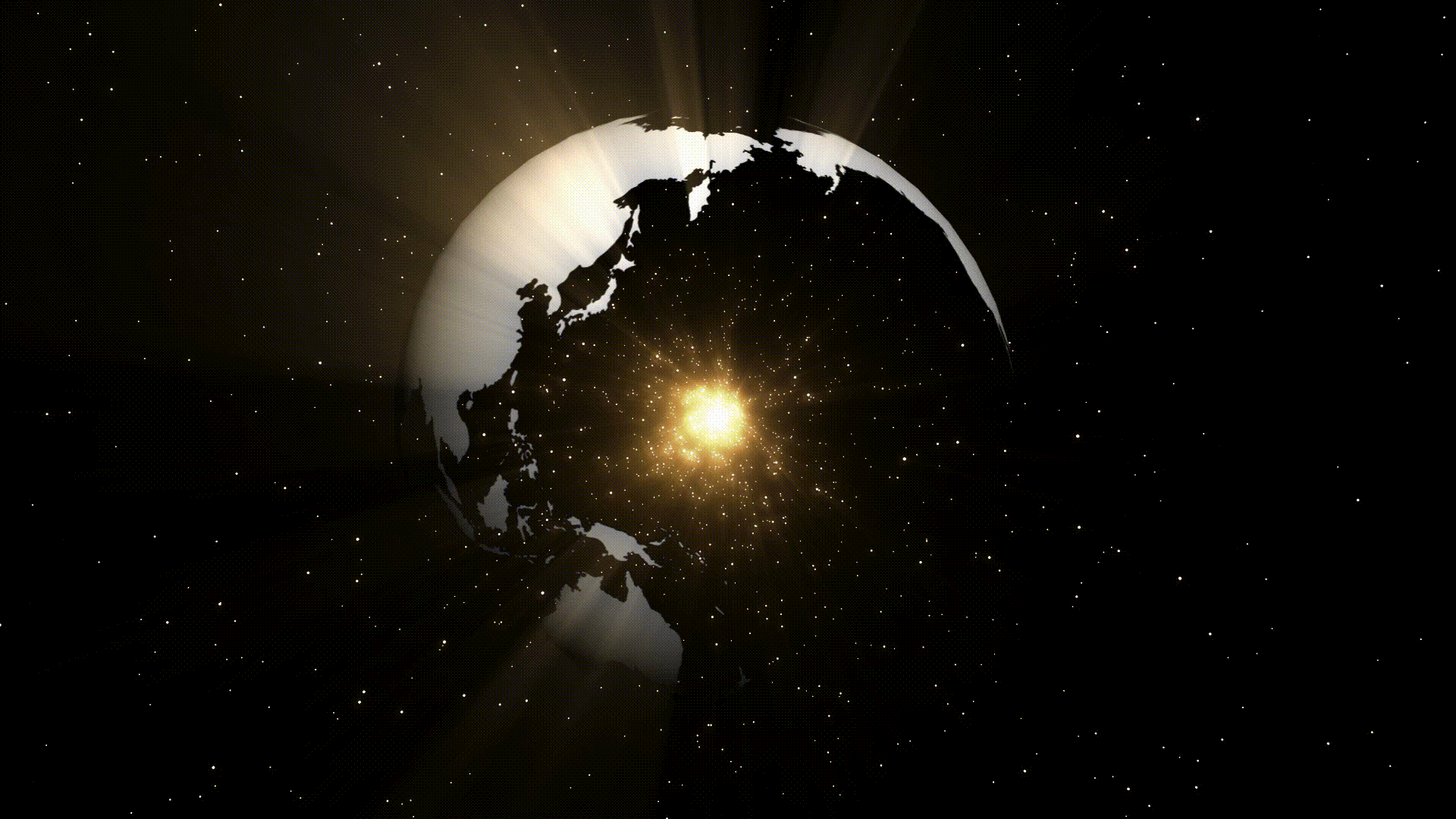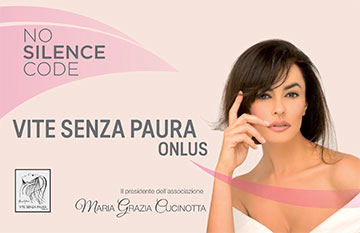Nature, in its infinitesimal beauty, gave pearls of wisdom and inspiration that shine throughout this collection. An experiment on the behaviour of spiders in weaving their web under the influence of drugs such as LSD, caffeine, sedatives, alcohol carried out by NASA in the 60s, as well as images of bees' vision of ultraviolet flowers, gave birth to a new reflection.
To understand the role humans must play on this planet to respect this fragile ecosystem, AELIS approached CNRS researcher Virginie Maris, to discuss the need for the decolonization of nature she addressed in her philosophical works.
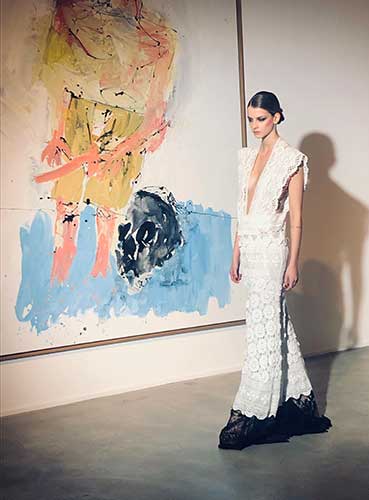 |
The focus, this season, was not only to reflect on the artistic gesture as a liberating expression for human beings, but also as a way to preserve the beauty of the wildness of the planet. This conscious act of protection takes place when individual artistic creation is brought back to a limited, "intra muros" space. Thus, came the idea of presenting a couture dress – the creative result of a process in which many human skills are needed – in an art gallery.
Sofia met the beautiful and eccentric Suzanne, founder of the Suzanne Tarasieve Gallery, and reflected on the freedom and value of an artistic gesture. This encounter was a generator of creative energy, and gave life to a conversation on art and nature. Inviting her friend Jacopo Godani, who directed AELIS' Angelness film last season, Sofia wanted to mix different viewpoints and have her dresses interact with Baselitz' paintings in the space of an art gallery, so that the new AELIS collection could come to life in a new perspective.
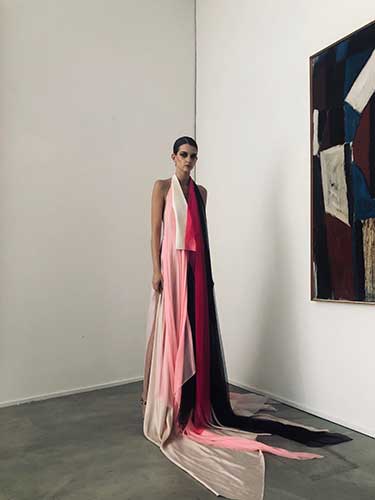 |
The space of the art gallery where Suzanne chose two gigantic paintings by Baselitz are the context in which the models express themselves by following an imagined thread, that brings them closer to the art object they wear, which they themselves represent, and which they perceive in the paintings that surround their space of action.
Jacopo expresses himself through images in movement and he identifies the moment in which the unconscious and the imagined memory are intertwined with the image of the present. Encouraged by him, the models turned into spiders.
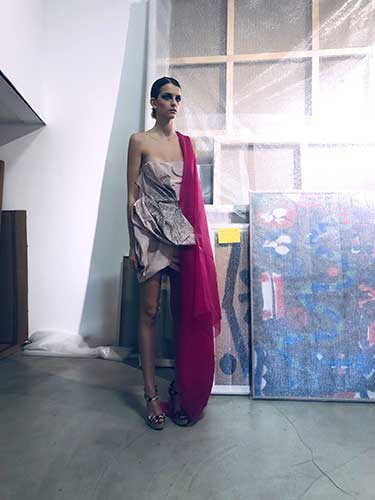 |
The spider's web inspired a spider-dress created with 200 meters of different laces: calais and chantilly handmade silk lace mixed with bobbin lace, all parts of a real treasure kept patiently by Sofia over the years.
Patience was also key to create a white crocheted lace dress, demanding artistic skill and savoir-faire in the art of embroidery to form a unique piece that highlights AELIS's signature verticality.
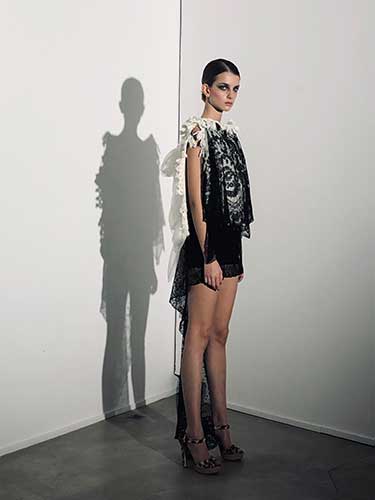 |
The lace spider web, found throughout the collection, covers an oversize dress sculpted on the body and held by a single jet-black strap, as well as a fuchsia pink halter dress in organic satin muslin, both imprisoned in black silk lace and influenced by the colours observed by bees. Lastly, the corsage dress, quintessential of the AELIS silhouette, gave rise to a powder pink organic faille minidress covered with a trail of metallic sequins, along with glass and silver beads.
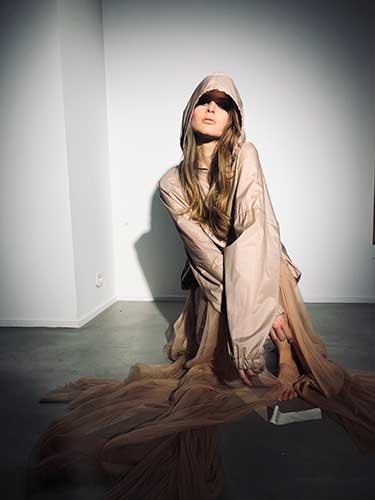 |
The artistic gesture, and the pleasure generated by its beauty, becomes the key to enable the decolonization of nature. Following in the footsteps of Lucretius and Epicurus, and joining in Virginie Maris' reflections, Sofia suggests to bring back the art produced by humans in a space created by themselves, in order to gain beneficial control and give space to wildness. In the manner of a Deus ex machina, the artistic act thus appears as an ecological solution.
© Aelis
Press Contact: Caroline Fragner

